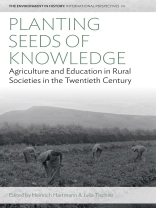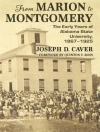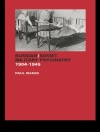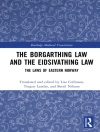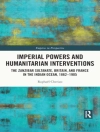In the late nineteenth and early twentieth centuries, agricultural practices and rural livelihoods were challenged by changes such as commercialization, intensified global trade, and rapid urbanization. Planting Seeds of Knowledge studies the relationship between these agricultural changes and knowledge-making through a transnational lens. Spanning exchanges between different parts of Europe, North and South America, the Indian subcontinent, and Africa, the wide-reaching contributions to this volume reform current historiography to show how local experiences redefined global practice.
Tabella dei contenuti
List of Illustrations, Maps, and Tables
Acknowledgements
Introduction: Planting Seeds of Knowledge: Agriculture and Education in Rural Societies in the Twentieth Century
Heinrich Hartmann and Julia Tischler
Part I: In Institutions: Brokering Contested Knowledge
Chapter 1. An Imperial ‘Shrine’ to Agrarian Research and Education: Decoding the Imperial Agricultural Research Institute, Pusa, in Bihar, 1905–36
Preeti
Chapter 2. Transferring Formal Agricultural Education to Liberia in the 1920s
Cassandra Mark-Thiesen
Chapter 3. ‘The Latest Developments in Agricultural Knowledge and Practice from the Outside World’: UNRRA’s Agricultural Rehabilitation Work in Italy in the Aftermath of the Second World War
Amalia Ribi Forclaz
Chapter 4. Building on Old Institutions: The Agricultural Extension Service and Village Institutes in Post-Second World War Rural Turkey
Heinrich Hartmann
Part II: Across Borders: Transnational Expertise and Entangled Bodies of Knowledge
Chapter 5. Models for the Village: Prototypes for Rural Modernization in Poland and Yugoslavia, 1910–40
Heiner Grunert
Chapter 6. Shifting Priorities: Dutch Agricultural Education and Local Knowledge Circulation, c. 1890–1970
Ronald Plantinga and Harm Zwarts
Chapter 7. Missed Encounters and Unexpected Connections: Transatlantic Crossings in the Study of Agricultural Work, 1920–60
Juri Auderset
Chapter 8. Putting Down Roots: Rural Youth Clubs in Costa Rica and Inter-American Development Cooperation, 1940–75
Corinne A. Pernet
Part III: On the Ground: Translating Bodies of Knowledge in Rural Communities
Chapter 9. The Politics of Rural Domesticity in Segregationist South Africa, 1902–48
Julia Tischler
Chapter 10. Between War and Productivity: Facets of Agricultural Training and Land Restoration in the Villages of Northern Greek Macedonia from the Civil War to the AMAG Programmes (1944–53)
Kalliopi Geronymaki
Chapter 11. The Sociability of Scientific Knowledge Exchange in British Farming, 1950–90
Sally Horrocks, John Martin and Paul Merchant
Chapter 12. Creating ‘Bungereza’ in Former ‘Bukedi’: Landscape, Languages and Markets in South-Eastern Uganda, 1870s–2000s
John Doyle-Raso
Chapter 13. Agrarian Colonization and Indigenous ‘Integration’: The Cotoca Project in Eastern Bolivia, 1955–62
Georg Fischer
Index
Circa l’autore
Julia Tischler is an associate professor of African History and co-director of the Center for African Studies at the University of Basel, Switzerland. Her first monograph, Light and Power for a Multiracial Nation (Palgrave Macmillan, 2013), dealt with the history of the Kariba Dam on the border between Zambia and Zimbabwe.
